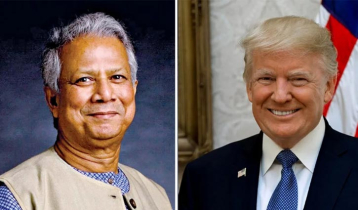The Growing Threat of E-Cigarettes in Bangladesh: An Urgent Call
Dr. Ferdous Zaman || risingbd.com

Manufacturers of e-cigarettes in Bangladesh are promoting their goods using a variety of tactics, particularly focusing on the young. These businesses continue to promote and sell these harmful products even though a significant portion of the populace is underage. Although e-cigarettes and traditional tobacco both seriously endanger public health, The Growing Threat of E-Cigarettes in Bangladesh: An Urgent Call for Regulation.
Manufacturers of e-cigarettes in Bangladesh are promoting their goods using a variety of tactics, particularly focusing on the young. These businesses continue to promote and sell these harmful products even though a significant portion of the populace is underage. Although e-cigarettes and traditional tobacco both seriously endanger public health, e-cigarette manufacturers falsely claim that e-cigarettes are less dangerous than tobacco. The usage of e-cigarettes is mistakenly marketed as a safer substitute and frequently presented as a solution to stop conventional smoking. Because of this, the younger generation is adopting e-cigarettes because they mistakenly think they're a safer alternative. Tobacco corporations make matters worse by organizing events like concerts and vape fairs to introduce the younger generation to this emerging product.
E-cigarettes, also known as "hit-not-burn," are becoming a new addiction for the young generation. Though marketed as a substitute for traditional cigarettes, they are highly addictive. These stylish, lightweight gadgets, which resemble lighters or pen drives, are quite discrete and may be used by users to trick their parents or guardians. The distinctive cigarette scent is disguised by a variety of flavors, so parents have no way of knowing if their child is developing an addiction to this new substance.
There are currently no laws or restrictions in Bangladesh about the promotion, sale, or usage of e-cigarettes. Consequently, these dangerous products are easily accessible in stores and online, which aids in their unrestrained spread. The younger generation is further persuaded to try e-cigarettes by the way they are presented in dramas, films, and web series.
In stark contrast to the 0.02 percent of e-cigarette users recorded by the Global Adult Tobacco Survey (GATS) (Bangladesh) in 2017, new research conducted by the Inter Press Network (IPN) shows a significant rise in the number of e-cigarette stores in Dhaka alone.
Moreover, a startling 95% of e-cigarette users are young students and multinational tobacco firms aggressively promote e-cigarettes.
Many nations have taken strong action to prohibit or restrict the sale, promotion, importation, and usage of e-cigarettes due to the evidence of their detrimental effects on public health. Roughly 121 nations—including Thailand, Sri Lanka, and India—have put laws into place. Of these, 39 nations have outright banned them, while 82 more restrict them in other ways.
Tobacco corporations have been able to advocate for the licensing of e-cigarettes in Bangladesh since there are no clear rules or guidelines governing them. While e-cigarette usage is increasing, it hasn't yet reached uncontrollable levels. Before things become worse, it is crucial to stop the proliferation of these harmful items and the deceitful business practices.
The usage of e-cigarettes is not reducing tobacco addiction, the younger generation is becoming addicted to smoke again because of the appeal of these tobacco items. Bangladesh should immediately prohibit the manufacture, distribution, import, export, transportation,
Advertising, stocking, sale, and marketing of e-cigarettes. This is what we urgently need at this moment. We want the government to change the existing tobacco control laws so that e-cigarettes are completely banned in Bangladesh. At this point, it is imperative to control the e-cigarette epidemic in Bangladesh. We fervently urge the government to enact laws banning vapes and e-cigarettes in our country to protect future generations from this emerging threat.
Manufacturers falsely claim that e-cigarettes are less dangerous than tobacco. The usage of e-cigarettes is mistakenly marketed as a safer substitute and frequently presented as a solution to stop conventional smoking. Because of this, the younger generation is adopting e-cigarettes because they mistakenly think they're a safer alternative. Tobacco corporations make matters worse by organizing events like concerts and vape fairs to introduce the younger generation to this emerging product.
E-cigarettes, also known as "hit-not-burn," are becoming a new addiction for the young generation. Though marketed as a substitute for traditional cigarettes, they are highly addictive. These stylish, lightweight gadgets, which resemble lighters or pen drives, are quite discrete and may be used by users to trick their parents or guardians. The distinctive cigarette scent is disguised by a variety of flavors, so parents have no way of knowing if their child is developing an addiction to this new substance.
There are currently no laws or restrictions in Bangladesh about the promotion, sale, or usage of e-cigarettes. Consequently, these dangerous products are easily accessible in stores and online, which aids in their unrestrained spread. The younger generation is further persuaded to try e-cigarettes by the way they are presented in dramas, films, and web series.
In stark contrast to the 0.02 percent of e-cigarette users recorded by the Global Adult Tobacco Survey (GATS) (Bangladesh) in 2017, new research conducted by the Inter Press Network (IPN) shows a significant rise in the number of e-cigarette stores in Dhaka alone.
Moreover, a startling 95% of e-cigarette users are young students and multinational tobacco firms aggressively promote e-cigarettes.
Many nations have taken strong action to prohibit or restrict the sale, promotion, importation, and usage of e-cigarettes due to the evidence of their detrimental effects on public health. Roughly 121 nations—including Thailand, Sri Lanka, and India—have put laws into place. Of these, 39 nations have outright banned them, while 82 more restrict them in other ways.
Tobacco corporations have been able to advocate for the licensing of e-cigarettes in Bangladesh since there are no clear rules or guidelines governing them. While e-cigarette usage is increasing, it hasn't yet reached uncontrollable levels. Before things become worse, it is crucial to stop the proliferation of these harmful items and deceitful business practices.
The usage of e-cigarettes is not reducing tobacco addiction, the younger generation is becoming addicted to smoke again because of the appeal of these tobacco items. Bangladesh should immediately prohibit the manufacture, distribution, import, export, transportation,
Advertising, stocking, sale, and marketing of e-cigarettes. This is what we urgently need at this moment. We want the government to change the existing tobacco control laws so that e-cigarettes are completely banned in Bangladesh. At this point, it is imperative to control the e-cigarette epidemic in Bangladesh. We fervently urge the government to enact laws banning vapes and e-cigarettes in our country to protect future generations from this emerging threat.
The writer works as Secretary, of the University Grants Commission of Bangladesh (UGC). He is also the Secretary General of the Dhaka University Sociology Alamni (DUSA) and a Member of the Bangladesh Press Council (BPC).
risingbd

































